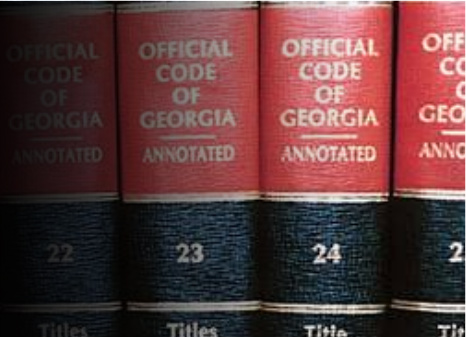The first overhaul of Georgia’s juvenile code in 40 years will be at least another year in the making. The rewritten code — Senate Bill 127 — failed to come up for a vote by the deadline to move it on to the House this year.
But because the General Assembly works in two-year sessions, the bill is not dead and may be taken up next year without being reintroduced or reassigned to a committee.
After its first reading in the Senate this year, the bill, also known as the “Children’s code,” was referred to the Senate Judiciary Committee, chaired by Sen. Bill Hamrick (R-Carrollton), who is also the bill’s sponsor.
“We had a hearing on the bill and discovered that some stakeholders had issues with the bill,” said committee aide Emily Fisher, “so Senator Hamrick asked those stakeholders to meet outside of the committee and work out some sort of compromise. The committee was set to hear the bill again, but we ran out of time.”
Hamrick “hopes to have worked out the stakeholders' concerns over the break this summer and fall in order to reach a version of the bill that may be passed and considered in the House,” Fisher said.
Meanwhile, supporters of the rewrite have begun talks with Gov. Nathan Deal. “There’s been some conversation with the governor because he had not been involved with the code, nor had his staff,” said Pat Willis, executive director of VOICES for Georgia’s Children, a statewide organization that supports research, communication, and advocacy for issues related to children and families
 Willis said she had not personally participated in a meeting with Deal, and she would not characterize his response to the code proposal. But, she said, “He has been vocal about the criminal justice system and not incarcerating folks who don’t need it.”
Willis said she had not personally participated in a meeting with Deal, and she would not characterize his response to the code proposal. But, she said, “He has been vocal about the criminal justice system and not incarcerating folks who don’t need it.”
Deal, a former juvenile court judge, told JJIE.org earlier that juvenile justice should be a component of a new bi-partisan effort to reform the state’s criminal justice system. “I would hope that we would be able to include juvenile justice in our review,” Gov. Deal said after a news conference announcing the initiative at the state capitol. “That is one of the fastest growing populations, so stemming that tide could play a major role in what we are trying to accomplish.”
And in a meeting with some Georgia Legislative Black Caucus members, Deal stated that he is willing to reassess laws that require or allow children to be prosecuted as adults and serve their time in adult prisons.
Code rewrite supporters also will soon begin talking to members of the state House, where the bill has yet to be introduced. “Such an extensive bill will take a lot of educating on the House Judiciary Committee,” Willis said.
Proponents of the new juvenile code never expected it to make it out of both chambers of the legislature this year, Willis said.
The decision was made during the 2009-2010 term, when a version of the bill was first introduced, to start with the Senate to avoid having two major judicial bills in the same chamber, she said. A new evidence code was being introduced in the House during that term.
“Having lined up a sponsor and support in the senate, we decided to stick with that,” she said.
Willis said supporters of the new code believe it will pass next year. Although they hoped it would clear the senate in 2011, she said they are “certainly not” disappointed “in terms of the expected overall outcome.”
After failing to make it to a vote in the 2009-2010 term, the bill, officially the Child Protection and Public Safety Act, was reintroduced on Feb 23.
In the interim, using the 2009 bill as a “draft,”’ authors worked with stakeholders to reach consensus on as many issues as possible.
The legislation would reorganize Georgia’s juvenile law into 12 articles, grouping provisions by type of case, such as deprivation, termination of parental rights and delinquency. New provisions would comprehensively revise Title 15, Chapter 11 of the Official Code of Georgia Annotated, relating to juvenile courts and the cases they hear.
The process of rewriting the code actually began in 2004 as a proposal by the late Judge Robin Nash, then President of the Council of Juvenile Court Judges. The Juvenile Law Committee of the State Bar of Georgia’s Young Lawyers Division took on the task, with funding from the Georgia Bar Foundation. Five drafts were completed before a model code was ready to meet its public in 2008. In the meantime, a 2005 state legislative study committee began looking at the need for rewriting the code.
And, in 2006, the Sapelo Foundation, based in Brunswick, pulled together Voices for Georgia’s Children, Georgia Appleseed Center for Law and Justice and Emory’s Barton Center into a new coalition called JUSTGeorgia, to advocate for children. JUSTGeorgia’s first major undertaking was the proposed new code.
Editor's note: Chandra Thomas also contributed to this story.
